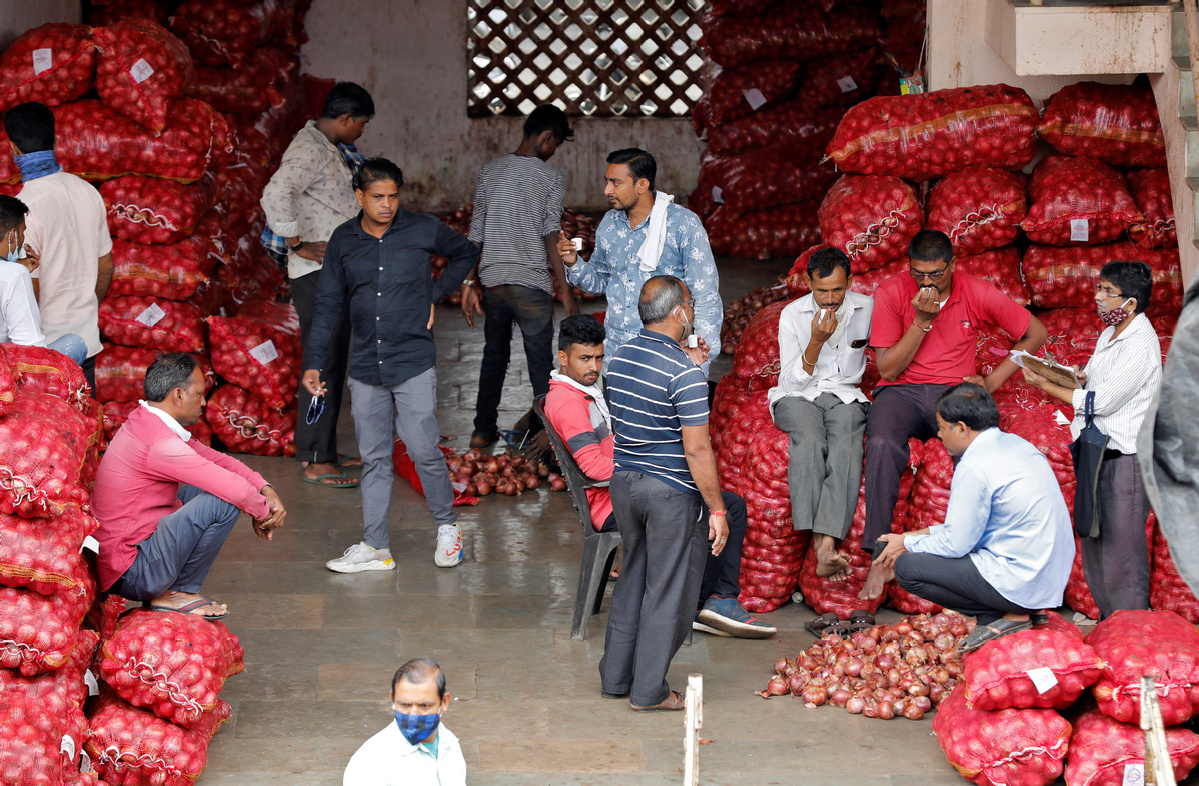Rows over Indian farm reforms not about to ease
By APARAJIT CHAKRABORTY in New Delhi | China Daily Global | Updated: 2020-11-10 09:50

New Delhi's enactment of three farm bills has intensified debate on whether India can follow China's rural reforms and also use technology to boost its agricultural productivity.
Lawmakers approved the Farmers' Produce Trade and Commerce (Promotion and Facilitation) Bill, Farmers (Empowerment and Protection) Agreement on Price Assurance and Farm Services Bill, and the Essential Commodities (Amendment) Bill.
They were passed by the upper house of Parliament in September and enacted on Sept 27 after President Ram Nath Kovind gave his assent.
"The acts will provide greater choice and freedom for farmers to sell their produce and to buyers to buy and store, thereby creating competition in agricultural marketing," said Ashok Gulati, Infosys chair professor for agriculture at the Indian Council for Research on International Economic Relations.
The new acts introduced by the Bharatiya Janata Party-led government have split opinion among economists and experts on whether they will usher in reforms in Indian agriculture similar to what Chinese farmers experienced in recent decades.
Divided opinions
There have been protests by farmers, largely in Punjab and Haryana, supported by opposition parties, including Congress.
The first act allows farmers to sell their harvest outside the Agricultural Produce Market Committees' mandis or physical, primary agricultural markets without paying any state taxes and fees.
The second act facilitates contract farming and direct marketing. The third removes cereals, pulses, oilseeds, edible oils, onions and potatoes from a list of essential commodities.
It will do away with the imposition of stockholding limits on such items except in extraordinary circumstances.
"India can learn these three lessons from China," Gulati said, adding the country should invest more in research and innovations, improve incentives for farmers by carrying out agri-marketing reforms, and break input subsidies into direct income support on a per hectare basis.
Debesh Roy, an economist and former deputy general manager of the National Bank for Agriculture and Rural Development said: "Highlights of China's agriculture system are collectivization, high R & D investment and innovations."
According to a report prepared by Ashok Gulati and Sakshi Gupta, a research assistant of the council, India and China started to employ technology to boost agriculture by using high-yielding variety seeds, optimizing irrigation and use of pesticides.
"China, however, took a significant lead over India in the agricultural sector by efficient agriculture reforms, policies and technology. Strict rules, strong reforms, incentives and ambitious investments in R & D have helped China," the report said.
Chandralekha Ghosh, an agricultural economist of West Bengal State University, said: "It is quite a different environment for India. India will not be able to attain that productivity level by simply following the strategy and policy of the US and China."
India needs to pay attention to capital investment in agriculture production as a significant share of the population still depends on it, the economist said.
The writer is a freelancer for China Daily.
























